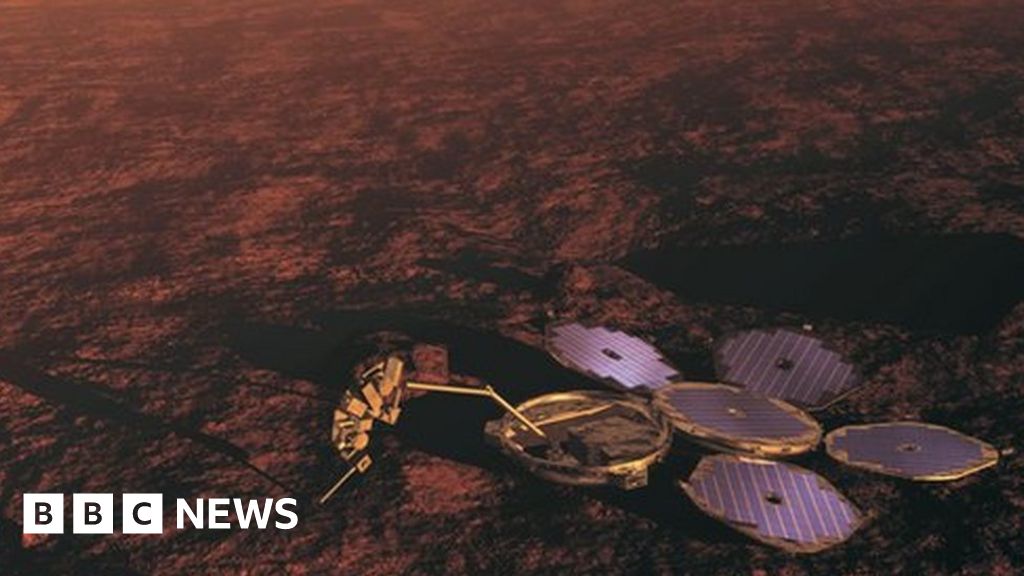- By Samantha Noble & Simon Ward
- BBC News
Beagle 2 may have collected scientific data for months but was not able to send any of it back to Earth
Twenty years after the UK’s failed mission to Mars which hoped to detect life, a scientist reflects on what happened.
On Christmas Day 2003, experts from the University of Leicester, who were working on the Beagle 2 mission, waited for a signal but none was detected.
Mission manager Prof Mark Sims said lessons from Beagle 2 have been used to improve potential future space landers.
Prof Mark Simms said the lessons learnt from Beagle 2 have been used towards potential future space landers
The landing went to plan and at least three of its four solar panels opened successfully.
Prof Sims, from the university, added: “It’s not easy to land on Mars. What we do know is it sat on the surface and the whole of the entry sequence worked, and got 99% of the way there.
“Unfortunately, the last 1% which was ‘I’m here, talk to me, tell me what to do’ never happened.”
He added: “All the lessons from Beagle 2 gave people a thorough grounding in space engineering.
“Some of the lessons have been recently studied in terms of a future generation of small landers.”
Despite the failure, the legacy of Beagle 2 lived on and people can learn about it at the National Space Centre in Leicester.
Josh Barker, from the centre, said: “Even just the ambition of trying, can get people excited – well what happened? What can we learn from that and what can we build on, to go to the next few stages?
“That’s the sort of thing we see here at the centre. People want to know what’s happening, want to find out what we understand, and how we can do better or improve on that in future.”

Dr. Thomas Hughes is a UK-based scientist and science communicator who makes complex topics accessible to readers. His articles explore breakthroughs in various scientific disciplines, from space exploration to cutting-edge research.








